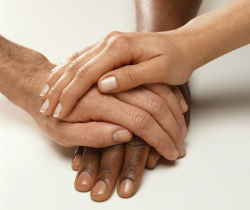According to the National Institute on Drug Abuse, depression and anxiety play a key role in substance abuse. Most people who are addicted to substances experience depression or anxiety before, during, and after they use their drug of addiction. The majority of patients treated for substance abuse experience these feelings. When searching for treatment it is important to understand the role of depression and anxiety in all aspects of substance abuse.
Depression and Anxiety as a Cause of Substance Abuse
Depression and anxiety are a major cause of substance abuse. When someone has depressive disorder or any one of the anxiety disorders, they often self-medicate. Self-medicating is taking a substance for the relief of a condition when a doctor has not prescribed the substance. People self-medicate with a variety of different drugs and alcohol.

Those who suffer with depression and anxiety may use substances for temporary relief.
These substances provide temporary relief from the disorder. Since the relief is fleeting, they continue to use the substance to continue to treat the disorder. Soon the pathways in the brain start expecting the substance when they feel the symptoms of anxiety or depression. When someone continues to use the substance, they rapidly become addicted to it and dependent on it.
Depression and anxiety are a major cause of substance abuse. As two of the most wide spread mood disorders, they are responsible for many people using illegal substances in order to treat them.
Depression and Anxiety during Substance Use
Many substances cause depression and anxiety as a part of taking them. When your body adjusts to the substance, the substance stops producing the desired effect. This is called building a tolerance. Once you become tolerant to a substance, the substance stops working to treat the depression and anxiety and starts to cause it. This is why addiction becomes so dangerous. You start to use more and more of the substance, a condition that often leads to overdose.
On top of tolerance, many of these substances cause depression and anxiety as a side effect. You wind up with the very conditions you are using it to treat. Many addicts find that after a while the substance they are addicted to causes as many bad feelings as it does good.
Depression and Anxiety after Substance Abuse
Depression and anxiety are effects of withdrawal for the majority of the legal and illegal addictive substances on the market. When you stop using the substance, your body goes into withdrawal, this causes anxiety over where to get the substance and how to find a way to use it. The body craves it and without it depression returns. The only way to avoid this is to use a treatment center to help you get off the drug and end the addiction.
Why Does Depression often Cause Substance Abuse?
Finding Treatment for Depression, Anxiety, and Substance Abuse
You can find a treatment center for depression, anxiety, and substance abuse by calling 1-800-487-1890 (Who Answers?)
. We can help to end the anxiety, depression and substance abuse without the discomfort of withdrawal and the endless cycle of renewing the addiction.
Social recovery is a different idea when it comes to drug addiction. In social recovery, the circumstances of a drug addiction are carefully thought through and then treated. According to the National Institute on Drug Abuse, there are many forms of drug addiction treatment. Social recovery is a new promising form.
1. Social Recovery Works on Your Life Rather than the Addiction
Social recovery is the concept that addiction happens when other basic needs are not being fulfilled. It is designed to improve your circumstances not just get you off the drugs.
2. It Allows you the Time to Change
It is not a quick fix. It is a slow process of fixing the problems in your life rather than simply getting you off the drug and putting you back into the same situation. It is designed to fix all of the things that are causing you to use drugs.
3. It Gives you a Chance to Mend your Relationships

Social recovery helps you rebuild your relationships.
Mending relationships is extremely important in the social recovery model. One concept of social recovery is that loneliness and isolation is partly to blame for your addiction. By helping you mend relationships, it stops the isolation.
4. Social Recovery Helps you Re-enter Your Community
Social recovery helps you to go back to your community life. It helps you to change the way you think, feel, and act around others and provides you with opportunities to interact with others around you.
5. It Gives you a Chance to Learn and Better Yourself
Social recovery does not just end when you are off the drug. It shows you how to correct the reasons for the drug use. It focuses on why and how you started to use rather than just the drug addiction.
6. It Takes the Burdens Away
Once you start to change your life, you find that the circumstances that were causing the drug use are no longer there. The burdens and stress that you felt before the program, do not exist anymore because it teaches you the coping mechanisms that you need to deal with your life.
7. It Promotes Social Change Rather than Just Physical Change
Instead of simply focusing on the addiction, it focuses on changing your community as well as your habits. Social recovery is not just about the addict, it is a community movement.
Individualized Drug Counseling as a Form of Substance Abuse Treatment
8. It Involves you in the Community
Part of the recovery program is to help you make the connections in the community that you need to maintain your sobriety and improve your life.
9. It is Not a 12 Step Program
Social Recovery is not a 12 step program. It does not focus on steps or follow any of the 12 step concepts.
10. Social Recovery Programs are a New Way of Treating Drug Addiction
Social recovery programs are a new concept in drug addiction treatment. The areas where social recovery programs are in place work as a complete renovation of your life as well as promoting community awareness about the circumstances of addiction. For more information on social recovery or to find out about the different treatments for drug addiction, call 1-800-487-1890 (Who Answers?)
.
There are many reasons why people use drugs or alcohol and of course, some of the primary ones are to relieve issues of stress, depression, anxiety, and even boredom. What most people fail to recognize however, is that this is only a temporary fix for what ails them and when repeated, can actually do more damage in the long run.
According to the Institute of Medicine (US), “Each year, more than 33 million Americans use health care services for their mental problems and illnesses or conditions resulting from their use of alcohol, inappropriate use of prescription medications, or illegal drugs.” Interactions between these illnesses often worsen the course for both and because of similarly involved regions of brain and its functioning, overlapping genetic vulnerabilities, and environmental triggers, a mental health disorder may be difficult to diagnosis.
Interplays and Treatment
Self medication is extremely common among substance abuse populations, but, mental health disorders, like addiction, continue to progress and worsen without appropriate help. According to the NIDA, “Although drug use disorders commonly occur with other mental illnesses, this does not mean that one caused the other, even if one appeared first.” For most substance abusers, mental health issues caused by substance abuse including depression and anxiety often diminish after time in abstinence with the help of counseling, behavioral therapies, and psychosocial support services.
The best addiction treatment programs integrate services that address both substance abuse and mental health disorders, each in the context of the other, and simultaneously to have the most beneficial outcomes. When neither illness is treated, one illness can make the other worse. According to the Depression and Bi-Polar Support Alliance, “When only one illness is treated, treatment is less likely to be effective. When both illnesses are treated, the chances for a full and lasting recovery are greatly improved, and it is easier to return to a full and productive life.”
Depression and Suicide Facts

Depression and substance use disorders often feed off one another.
According to the CDC, “Depression is the most common type of mental illness, affecting more than 26% of the U.S. adult population.” Persistent depression and suicidal behaviors are closely linked to drug and alcohol abuse and vulnerability risks can remain long after addiction treatment ends. According to a report from the Center for Behavioral Health Statistics and Quality (CBHSQ), “In 2013, an estimated 1.3 million adults aged 18 or older (0.6 percent of the population) attempted suicide in the past year, 2.7 million (1.1 percent) made suicide plans, and 9.3 million (3.9 percent) had serious thoughts of suicide.”
Even when these disorders are not explicitly linked to the substance abuse disorder itself, they often stem from the consequences including:
Biological factors such as imbalances in neurotransmitter functions other brain stress and reward system disruptions or damages
Environmental stressors such as being homeless, convicted of criminal charges, or unable to find a job and the necessary resources to live a healthy, satisfying, and productive life
Failed relationships
Loss of job
Financial losses
Loss of social support or isolation
Failed attempts to quit
Physical health problems
Assaults, or traumatic experiences
Fear or resentment of others
The list can go on and on, but, what is important to remember is that treatment works and there is hope.
Mental Health Basics
According to the CDC, researchers indicate that mental health can be represented by three major domains including:
Emotional well-being – such as perceived life satisfaction, happiness, cheerfulness, peacefulness.
Psychological well-being – such as self-acceptance, personal growth including openness to new experiences, optimism, hopefulness, purpose in life, control of one’s environment, spirituality, self-direction, and positive relationships.
Social well-being – social acceptance, beliefs in the potential of people and society as a whole, personal self-worth and usefulness to society, sense of community.
Some addicts find that their inability to control mood swings, negative ideations or emotions, and stressful events actually requires some sort of psychiatric assistance with medication to help them regulate neurotransmitter functions that have been disrupted or damaged during their substance abuse. Methadone is a prime example of this with a long history in helping to improve overall physical, psychological, and social wellbeing by reducing cravings and withdrawal symptoms for long term treatment effectiveness and helping to reinforce the message of hope in opioid addicts who would be less likely to recover on their own.
Dual Diagnosis and the Importance of Treating Co-existing Mental Health and Substance Use Disorders
It is common for the family members of an addicted individual to insist that the person gets help, but sometimes, a person may have been abusing substances without the knowledge of their loved ones. If you have found yourself in this situation and suddenly realize that you are in need of intensive addiction treatment, it can be extremely beneficial to talk to your loved ones about this need and about how they can help you find the treatment you require. But how can you begin to broach the subject?
Write It Down
Before you decide to talk to your family members, write down your thoughts and feelings, even turn it into a script where you write exactly what you would like to tell them. Sometimes, in discussing issues that cause us to feel embarrassed, frustrated, or uncomfortable, we say things we don’t mean or forget to tell others something important. Writing your feelings down will truly help you collect your thoughts and have a better idea of what you want to say.
Be Prepared for Emotions

Although your family may be upset to learn of your addiction, they will likely want to help you in any way they can.
If you have not yet discussed your substance abuse with your loved ones, there is a strong possibility they may become emotional. It is important to try and stay calm and to ask them to do the same. If you feel the situation is becoming volatile, it is perfectly acceptable to excuse yourself.
For this reason, many individuals hire a professional interventionist or counselor in order to help them speak to their loved one who has been abusing substances, and you may want to do the same. But if you are unable to do so in your current situation, try to stay calm and remind your loved ones that you are reaching out to them for help.
Be Honest
It is likely that you have not been honest with your family as of late if they know nothing about your substance abuse. If they ask you certain questions about how much you were using, where you got the money, or other inquiries, it is important to try and be honest. Also, if you feel that you cannot answer a certain question, it is much better to tell them, “I prefer not to say” than to lie.
Ask for Help
According to the National Institute on Drug Abuse, “Family and friends can play critical roles in motivating individuals with drug problems to enter and stay in treatment.” If you are at the point of asking your family for help, then you probably already know you need to attend a professional treatment program. When you talk to them, suggest ways in which they can help you like with finding a treatment center, visiting you in inpatient care, or showing in other ways that they support you.
Your loved ones may be shocked or hurt at first, but it is likely that their desire for you to be safe and healthy will allow them to help you find the right treatments for your needs and begin a recovery with the kind of strong social support you require. If you would like to find a treatment center in your area or learn more about the consequences of substance abuse, call 1-800-895-1695.
Living with a Loved One Suffering from a Substance Abuse Disorder
There is no simple answer to what triggers substance abuse. A trigger is very simply a place, action, person, or behavior that causes you to want to use a drug. Each trigger is different for different people. It is important to identify and defeat these triggers while you are in recovery. Triggers can cause you to crave the drug and possibly relapse into its use. Much of recovery is identifying what triggered the substance abuse and correcting these issues. Although triggers are relatively individual, there are some that many people have in common.
Common Triggers
Many people have similar triggers in common. It seems that the same emotions, events, or people tend to cause a variety of people to use drugs. These common triggers are:

Stress is one of the main causes of substance abuse and relapse.
Stress – according to the National Institute on Drug Abuse, stress is the number one trigger to substance abuse. This could be stress at work, school, or home. Many start drinking or doing drugs because it temporarily relieves some of this stress.
People you associate with use – friends can be a trigger as well. For example, if you are used to drinking around your friends, being around those same people will trigger the urge to drink.
Places you associate with use – if you go to a certain bar or a place to use drugs or alcohol, going there again can cause you to crave what you used there. The sights, smells, and atmosphere of the place can cause a relapse or cause you to have the craving for the drug.
These are all common things that cause you to use drugs or alcohol. Personal triggers might range to aspects of these things but generally, when you break them down to their basics, it is one of these common things.
Triggers and Relapse
Triggers are very important when it comes to relapse. People who do not have adequate control of their triggers will relapse easily. There are a few things that you can do to avoid triggers. These things are:
Identify each trigger.
Have a plan to deal with them if you come across them.
Make sure that you know what to do if an unexpected one arises.
Take care of yourself to help reduce and avoid stress.
Do not push it; when you start to feel stressed or a craving, back away.
Do not try to test yourself against your triggers until you are ready.
10 Common Substance Abuse Triggers
Avoiding or controlling the triggers around you, once you’ve identified them, is key in avoiding relapse behaviors. Those that cannot identify their triggers stand a poor chance for success when it comes to recovery.
Knowing your triggers is similar to knowing and treating the cause of the addiction. You can help your recovery by identifying triggers early and avoiding them. For more help with treatment, identifying triggers, or finding a good treatment center, call us at 1-800-895-1695. We can help you find a treatment plan that works for you.
According to the National Institute on Drug Abuse, there are many types of treatment available for substance abuse. Although knowing the treatment types is important, knowing what to ask your doctor about the treatment is also necessary. You need to find the treatment type that suits you the best, and you can only learn this by asking the right questions.
What Types of Treatment are Offered?
The types of treatment offered is extremely important. Although your doctor might recommend one course, it is essential that there are other options if one is not working for you. Not all treatments are suited to all patients.
Will my Insurance Cover Treatment?

Be sure to ask your doctor what treatment options your insurance covers, if any.
Some insurance companies cover substance abuse treatment. If your insurance only covers certain types of treatments, it is good to know which ones it covers and the availability of that type of treatment.
How do you Measure Progress?
You will want to know what treatment progress means. This way you can tell if your treatment is working.
Can you Administer the Medication for the Treatment you Prescribed?
Some substance abuse medications are regulated by the DEA. Some doctors can prescribe them while others are not certified to do so. Most doctors who specialize in addiction treatment have the proper certifications but general practitioners usually do not have those certifications.
What Kind of Results do you Usually Get?
Knowing a doctor or treatment center’s success and failure record will help you decide if they are the right one for you. Not every doctor or treatment center works for every patient and many times it takes a few tries before you find the right one.
Do you also Treat Secondary Illnesses such as Mental Illness and Chronic Pain?
Secondary illnesses or comorbid disorders are very common with substance abuse patients. This means that both the disorder and the substance abuse should be treated.
Can my Friends and Family Help with Treatment?
Family support and a support network is extremely important during treatment. It is a good sign when a doctor offers family counseling or involves your family and close friends in your treatment.
Things Substance Abuse Treatment Centers Won’t Tell You
Can you Adapt the Program to Me?
Whether the program is adaptive or not is a very important question to ask. If the program is adaptive, it will change as you change or can be changed to suit your needs. Not everyone is the same and being able to change a treatment program to suit an individual is very important when it comes to treatment success.
Where Can I Find a Treatment Center?
There are hundreds of treatment centers to choose from. It can be extremely confusing trying to pick one out of all of them. Although your doctor may be able to recommend a center or might even work with a center it is always good to get a second opinion. For more information on the different treatment types or if you need to know what to say to your doctor, call us at 1-800-895-1695.
Life goes on even when you have an addiction. Although it would be nice for everyone to be fair and kind when you are suffering from something such as a drug addiction, many times this is not the case. Telling people about your addiction is a complex situation that you might not be sure how to deal with.
On one hand in recovery, you are taught to be honest and open about your addiction. On the other, in the real world being open and honest can cost you your friends, their trust, and even your job depending on the addiction. Many addicts fear this loss of trust and friendship when they disclose their addiction.
Can you Tell New Friends?

If you plan on having a long-term friendship with someone, it may be best to bring up your addiction relatively early on in order to avoid any trust issues.
Although you can tell new friends if you choose to, they might not react well to the news. They might not trust you or understand your addiction. Approaching the subject of addiction is even a touchy prospect at times.
If you plan on engaging in a long term relationship with a new friend, particularly if that relationship is a romantic one, you should be upfront about your addiction. If they found out later they might consider it a betrayal.
If the new friend is just a casual new friend, you might not want to disclose your addiction until you know them better. Although it is important to be honest, it is also important to protect yourself. If the person you are considering telling is not a true friend they can make things difficult for you.
Who it is Safe to Tell
According to the National Institute on Drug Abuse, addiction is a disease. Unfortunately, not everyone looks at it that way. Many people view addicts and people in recovery with suspicion and mistrust. They do not understand that the addiction is not poor character or lack of willpower; it is something that you cannot control without help.
Although you cannot keep it a secret for your whole life, especially from those whom you are close to, who you tell about your addiction is extremely important. It can be difficult deciding whom you can trust and who you cannot. Some obvious people to tell are:
your spouse – this is the person most likely to have a need to know, particularly if you relapse.
your doctor – doctors are bound by confidentiality and cannot disclose your condition to anyone.
your insurance company – you only need to disclose addiction treatment here if you plan on using your insurance for treatment.
your closest friends – although chances are your close friends already know, it might be best to disclose anyway, that way they can help.
the people in your support group – people who have been where you are and can help are relatively safe to tell.
How to Talk to Someone Who is a Substance Abuser About Their Use
It is very difficult to determine who to trust when you are considering talking to someone about your addiction. It is up to you to decide whether to say anything or not. Think carefully before you mention your addiction to anyone.
For more information about telling people about your addiction, call us at 1-800-695-1695. We can help guide you through the pitfalls of treatment and recovery.
A substance abuse trigger is something that gives you a reason or an excuse to drink or use drugs. A trigger can be just about anything that you associate with the drug use. Most people have a variety of triggers in common. Those who use drugs or alcohol on a regular basis often feel these triggers.
1. Stress at Home and Work
According to the National Institute on Drug Abuse, stress is a huge factor in what triggers substance abuse. Stress at home or stress at work can cause you to turn to drinking or drugs in order to reduce that stress even if it is only for a little while.
2. Finances
Money and financial matters also are a trigger for substance abuse. They are part of the overall stress but sometimes not having enough money to pay bills and acquire the substance is the trigger.
3. Friends who Use

Chronic pain often leads to substance abuse due to the addictive nature of prescription painkillers.
Being around friends who use your substance of choice or any substance for that matter often cause issues with substance abuse. Seeing them have fun using can trigger your own use.
4. Seeing the Drug or Alcohol
Visuals of the drugs or alcohol also trigger you to relapse or use. Although you will not be able to avoid all of them, you can avoid some of them by staying away from things that you know will picture the substance.
5. Going to a Place that You Frequented
If you frequented a place as a user, it is unwise to frequent it as a nonuser. Familiar surroundings might cause you to want to use a substance.
6. Smells that you Associate with Use
Smell is one of the most powerful memory triggers. Just as you can smell something associated with a food, you can smell something that you associate with the drug use. Smell is one sensory trigger that you want to avoid.
7. Sounds such as Music that you Associate with Use
Just like other sensory triggers, sounds such as music can be associated with drug use. Since sensory triggers are so powerful, you should try to avoid songs and other sounds that you listened to while using drugs or alcohol.
8. Untreated Chronic Illness
Pain is a powerful trigger. Many addicts start their addiction because they have a chronic disorder that causes them pain. Unfortunately, the same medications used to treat chronic illness are often addictive. By leaving the condition untreated the drug use could be triggered again.
Why are Anxiety and Substance Abuse Linked?
9. Untreated Mental Illness
Although technically not a trigger, untreated mental illness can lead to drug use. Self-medication is one of the primary causes of drug use and drug addiction. If you were self-medicating for a mental illness and suddenly stop, that mental illness will come back. This triggers the drug use again.
10. Not Seeking Treatment at All
An untreated condition is a very large trigger for drug use. The best way to stop this trigger is to treat the condition. For more information about substance abuse treatment, call us at 1-800-895-1695.
According to the National Institute on Drug Abuse, many aspects of drug abuse and treatment are misunderstood. Although like hospitals, all rehabs are different and have different standards, prices, and outcomes. Like anything, there are aspects that are unknowns when you enter a specific rehab. Most rehabs do not make these unknowns plain before you sign on for treatment.
Standard Rehabs are Not Always the Answer
The standard types of rehab are:

There are a variety of rehab options to choose from, not just traditional.
While each of these rehabs are effective and readily available there are other options to consider. Some of these options are:
All of these offer alternatives to the traditional rehab experience. Before trying one of these nontraditional rehabs, speak with your doctor, and speak with the nontraditional rehab you wish to join. Some of them have very strict rules and guidelines that must be adhered to.
Expensive Does Not Necessarily Mean Better
Just because a rehab offers high priced amenities it does not mean that the rehab is any more effective. This is a fallacy that the more expensive something is the better it is. There are many reduced cost and free rehabs that are just as effective as those that are expensive.
You Should Check Credentials Before Entering a Rehab
It is important that the rehab that you attend is accredited for treatment in your type of addiction. Some addiction withdrawal is dangerous and may be harmful. This is why there are regulatory agencies that monitor the various rehabs for cleanliness, staff qualification, and program efficiency.
Be Wary of Your Privacy
One of the most important things that many rehabs stress is their respect for your privacy. Although the rehab might be able to guarantee that, they will not violate your privacy this does not mean that others will not. This includes friends, family, and other rehab residents.
It is important to be mindful that you are around others in the rehab that are not under the same restrictions as the rehab staff is. Be careful whom you talk to you about your personal life and complications.
Online Support for those in Substance Abuse Treatment
Treatment is What you Put Into It
You get out of treatment what you put into it. If you decide going into rehab expecting everyone to solve your problems for you, this will not happen. You have to work to figure out what works for you and your goals. Once you have set your goals, it is important to know that no one can accomplish them for you.
Although counselors, doctors, and therapists can help to guide you on your path to recovery, it is you who has to do the work. Sometimes it is easy to discover and treat the cause of addiction, while other times it takes a lot of self examination and work in order solve the problem.
It is Not Hard to Find a Good Rehab Center
It is not difficult to find a good rehab center. All you have to do is call 1-800-895-1695. We can help you find your options and decide on what is right for you.
There are thousands of myths surrounding rehab and substance abuse treatment. Most people who go to treatment quickly find out that these myths are not true but there are some that the myths discourage from ever seeking treatment at all. It is important to dispel some of these myths before they stop you from seeking treatment.
1. Treatment Centers are Religious
This is just not true. Many treatment centers do not involve religion in any of their treatment. If you want a religious treatment then there are religious treatment centers as well.
2. They do not Allow Visits from Family or Friends
Most treatment centers encourage contact with family and friends to both repair the relationship and consolidate a solid support network.
3. You are Forced to do Things you Do Not Want to Do
No one can force you to do thing that you do not want to do or are against your beliefs unless you are ordered to by a court of law. Most rehab centers operate on a voluntary basis and their programs are there to help you not force you.
4. You Have to Be Rich to Go to Rehab
Although we hear of celebrities going to rehab, you do not have to be one to enter a rehab. There are many low cost and free ones available.
5. Only one Form of Treatment Works

There is no specific treatment that works for everyone because each person has their own unique needs.
There are several forms of treatment that work. Everyone is different so sometimes it takes a different type of treatment to help them.
6. You Have to Hit Rock Bottom
You can enter rehab anytime during your addiction. You do not have to hit bottom to do so.
7. Willpower Alone not Treatment Works
Willpower is a powerful thing but willpower alone will not help most people break an addiction.
8. Relapse is Failure
Relapse is a bump not a failure. It is an indication that you might need to change treatment methods.
9. Drug Treatment is Fast
Drug treatment takes time and effort. Like anything that is worthwhile it is not fast.
10. Drug Treatment has to Take a Long Time to be Effective
Withdrawal and drug treatment can be relatively short depending on the type and severity of the addiction.
11. If One Treatment Method Does Not Work None of the Others Will
According to the National Institute on Drug Abuse, there are a variety of treatments available and if one fails another might just work.
12. Drug Addiction is Voluntary so Treatment Should Not Be Needed
Drug addiction is a chemical and sometimes genetic disease. Treatment is almost always needed.
Four Myths Of Addiction Treatment
13. Treatment Centers are Similar to Spas
Treatment centers have amenities such as massages and onsite gyms but for the most part they are medical and counseling centers.
14. Seeking Help is a Sign of Weakness
Seeking help is definitely not weakness. Admitting you have a problem is one of the strongest things that you can do. It is only weakness if you try to hide that something is wrong and do not get help when you need it.
15. It is Difficult to Find Help
It has never been easier to find help. You can find it by calling 1-800-895-1695.









